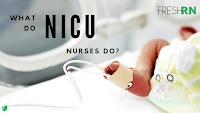Health&Living columnist Katie Byrne has read hundreds of self-help books - some good, many bad. So which are the indispensible titles in the Katie canon?
You should never ask a woman her age, how many lovers she's had or how many self-help books she has read.
That's the answer I tend to give when the latter question is broached, although I'll concede that I've read quite a few. If you read the Breathing Space column in this magazine, you'll know that I try to glean insights from many self-development sources. Some are current, some are classics, but they're all, to my mind, worthy of being shared. But it's a huge market, and not everything you see on the shelves is worth reading. So how do you know which ones to try? As a general rule, I stay away from books that were panic-written in time for the January self-improvement market. I also avoid books that piggyback current trends, whether it's mindfulness, morning rituals or the latest Scandinavian lifestyle import.
And I have no truck with books that promise to "change your life!". If you really think you need to conclusively overhaul every aspect of your being, well then you're going to need more than a book. Self-development books work best when there's a specific challenge to overcome. If you want to deal with grief, break a habit or stop procrastinating, you'll find no shortage of excellent books by experts in the field. But if you walk into a bookshop hoping to change your life, you'd be better off reading your horoscope.







